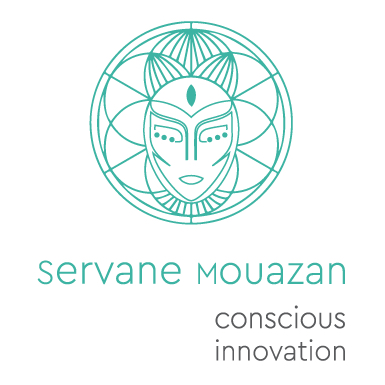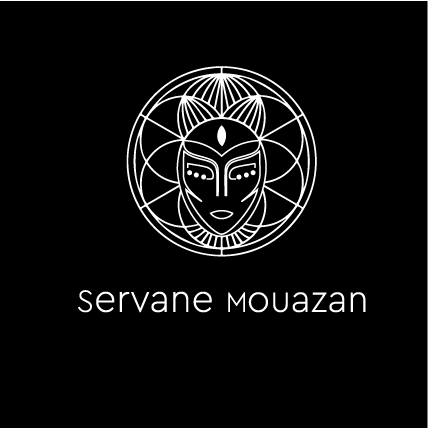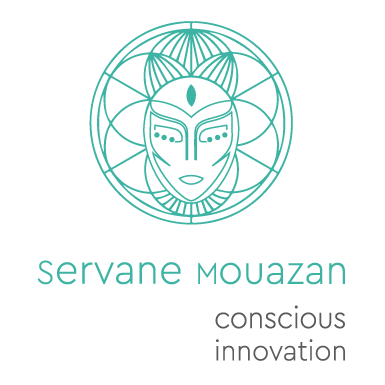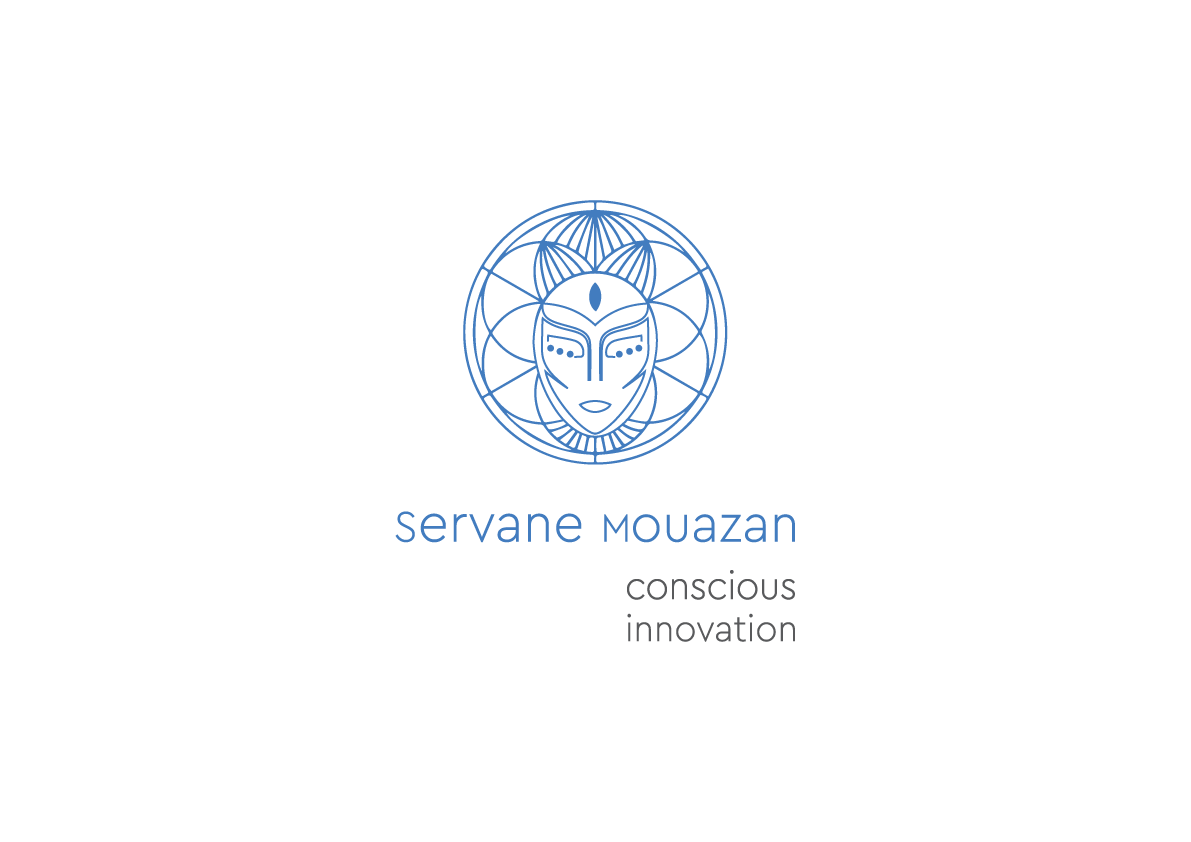How to be a Futures-Friendly Social Investor with Erika Brodnock
In this episode of Be & Think in the House of Trust, I loved listening to Erika Brodnock, an angel investor, a UK-based award-winning entrepreneur, CEO and founder of Kinhub, a philanthropist and behavioural scientist, on a mission to create fairer, more equitable workplaces for everyone.
Erika works at the intersection of technology, well-being and product development, and she made it a purpose to find and clear paths out of outdated systems. She is the author of Extend Ventures’ Diversity Beyond Gender, the co-author of the TRANSPARENT Framework, and recently Better Venture.
In the House of Trust, we discuss obstacles around diversity in the investment world, the barriers to entry for minoritised entrepreneurs seeking funding, and practical ways forward.
Plus, Erika shares her vision of a fairer, more equal future.
Highlights from this episode:
(04:15) This is the biggest issue with venture funding
(08:03) The importance of getting to know people
(10:57) The wealthiest place on Earth are the graveyards
(15:44) Rising tides raise all boats
(18:28) The white ally
(20:21) What will the world be like in 2033?
Useful Links
Connect with Erika Brodnock on LinkedIn
Kinhub https://www.kinhub.com/employers
Extend Ventures https://www.extend.vc/diversity-beyond-gender
(Report) TRANSPARENT Framework
(Book) Better Venture
{{footer}}
Transcript
Hello everyone, my name is Savannah and I welcome you
Unknown:back to the house of trust. It's a podcast aimed at people who
Unknown:love to invest in social change. In this show I'm talking to
Unknown:investors will explore what it takes to show up face
Unknown:uncomfortable truth and you're bold enough to listen reflect in
Unknown:real time. Together, we look at what amplifies trust,
Unknown:accountability impact, and we also look at assumptions that
Unknown:slow us down. My guest today is Erica Brignac. She's a UK based
Unknown:award winning entrepreneur, she's philanthropist and an
Unknown:angel investor. And Erica's work is at the intersection of
Unknown:technology wellbeing and product development. And she made it a
Unknown:purpose to find and clear paths out of outdated systems. We're
Unknown:going to talk to her about all these.
Unknown:How are you Rico
Unknown:Isodyne. Thanks so much for having me.
Unknown:I'm so pleased that you can be free to talk to us today. You
Unknown:are also a PhD candidate and Research Officer at LSE is the
Unknown:inclusion initiative. And you are also co founder at extend
Unknown:ventures, where you are leading research that aims to understand
Unknown:and diversify access to venture capital and innovation finance
Unknown:for ethnically diverse entrepreneurs. And that's not
Unknown:it, you were also the author of diversity beyond gender and a co
Unknown:author of the transparent framework and recently as well
Unknown:better venture. So we can what feels your energy to find and
Unknown:clear paths out of outdated system.
Unknown:So I think for, for the most part, the the work that I do,
Unknown:has been centered around problems that I faced as an
Unknown:individual, whether that be as a parent, when I created charisma
Unknown:kids, I was quite fed up of the fact that all of the technology
Unknown:products that were on the market at the time, were geared at
Unknown:creating humors of our children. So they were only encouraged to
Unknown:consume technology or become consumed by technology. And I
Unknown:wanted to build something where they were able to start to use
Unknown:technology for their benefit and for good. So I created charisma
Unknown:kids at the time that helps children to develop emotional
Unknown:intelligence skills, and then to use those skills to learn how
Unknown:to, to to just kind of be the best versions of themselves.
Unknown:I've since gone on to to look at the access to funding,
Unknown:particularly venture capital funding by ethnically diverse
Unknown:entrepreneurs. And that was mainly because when I was
Unknown:running charisma kids, I found it impossible to fundraise and
Unknown:really considered hiring in a white male CEO, in order to, to
Unknown:kind of be able to enable my business to progress and to
Unknown:proceed. I felt that, you know, that wasn't fair. Because, you
Unknown:know, at the time, we were being told that all businesses were
Unknown:being judged on merits and we had enough merit as a company to
Unknown:be able to fundraise, but I just still couldn't do it. That led
Unknown:to me taking an MBA, and then to eventually the PhD in behavioral
Unknown:science that looks at diversifying that access. So as
Unknown:I say, I find that many of the problems that I faced are
Unknown:problems that are being faced by much broader communities than
Unknown:just myself. And then, you know, if I don't solve them who will?
Unknown:Wow. And so the, there's a wealth of ideas that can come
Unknown:out or recite, imagine and what more more came up for you during
Unknown:this this kind of bumpy journey.
Unknown:So there are a whole host of problems out there. And I think
Unknown:that part of the biggest issue that I see with venture funding
Unknown:being as kind of centered around traditional male, white, elite,
Unknown:highly educated entrepreneurs means that actually, the
Unknown:problems that exist for communities that sit outside of
Unknown:that don't mean solved. So one example is that Asian women are
Unknown:three times more likely to die in the child rearing period than
Unknown:their white counterparts. Black women are four times more likely
Unknown:to end to die in the child rearing periods than their white
Unknown:counterparts. And there isn't anything at the moment that
Unknown:solves that issue. Kin hub is the most recent company that I
Unknown:founded. And that exists to ensure that everybody is
Unknown:listened to. And but everybody receives personalized care
Unknown:throughout life's journeys. And so we seek to solve the issue of
Unknown:people not being listened to, of people being assumed to have
Unknown:thicker skin, or to feel less pain, or the kind of one size
Unknown:fits all approach to healthcare that has seen this, these
Unknown:disparities created in the first place. Now, if people like me
Unknown:aren't given any funding in order to ensure that our
Unknown:businesses are able to thrive, we ended up in situations where
Unknown:those those statistics persist. Those disadvantages, persist
Unknown:them naturally over time. They keep increasing and being
Unknown:magnified. And that just impacts all of society. And it also
Unknown:causes problems for the VCs themselves who are missing out
Unknown:on outsized returns, through solving some of these problems
Unknown:that exist in communities that they're just currently
Unknown:overlooking.
Unknown:Wow. So we've I feel that the impact in Nepal, you know, the
Unknown:social impact environmental impact, funding ecosystem sales
Unknown:got a lot of homework to do. I wonder what would you think they
Unknown:should experiment with to address this uncomfortable truth
Unknown:that you've just enumerated that still don't getting solved?
Unknown:So I think that the best thing to do is start to befriend
Unknown:people and get to know people that they wouldn't ordinarily
Unknown:associate with. It's a known fact that people make
Unknown:investments based on gut instinct and gut feel, as
Unknown:opposed to any of the things like data. I mean, we all say
Unknown:that we make database decisions, very few people actually do, we
Unknown:tend to make system one decisions, which are emotional
Unknown:decisions. And then we will back that up with logic and the
Unknown:system to thinking once the decision has already been made,
Unknown:and confirmation bias, and all sorts of other bits and pieces
Unknown:enable us to justify those decisions in our mind, once we
Unknown:already made the emotional decision. There is also a
Unknown:phenomenon called homophily, which says that, actually we
Unknown:like people that are most like us, or that we already know, and
Unknown:that we're already associated with. So for example, what we
Unknown:see is that 70% of the money that's invested into early stage
Unknown:venture goes to founding teams that have been to top 10
Unknown:universities, across the US and the UK, that happens because 70%
Unknown:or more of the venture capitalists have been to those
Unknown:same university. And if you've been to my university, I believe
Unknown:that you are the smartest out there, because actually, there's
Unknown:that homophily that says that, you know, I, I know you I trust
Unknown:you we think in the same way. And similarly if I'm the same
Unknown:gender is you or them the same ethnicity as you, it's much
Unknown:easier for me to find common ground with you and and build
Unknown:the camaraderie that's needed to get the deal from from start to
Unknown:close.
Unknown:It you know why I'm feeling is I mean, there's maybe sometimes
Unknown:not malevolence, enduring that people find they're comfortable
Unknown:to be, you know, unrolling others, they know where they
Unknown:seem to recognize, but where's the where's the space for
Unknown:drawing man imagination and risk
Unknown:in there. But the thing there isn't the space for genuine
Unknown:imagination, and innovation. And this is why I was saying that,
Unknown:in reality, venture capitalists are missing out on opportunities
Unknown:that they could have, if for outsized returns from groups
Unknown:that are being overlooked because of that homogeneity,
Unknown:that is occurring as a result of homophily. So I think that the
Unknown:first step that people can take is getting to know somebody
Unknown:different. I sit on panels all the time, and people listen to
Unknown:me speak and, and they're sometimes surprised that I can
Unknown:be eloquent. They are surprised that I'm friendly, rather than
Unknown:aggressive. And, you know, people won't necessarily display
Unknown:this outwardly. But if you look at micro aggressions, you can
Unknown:start to see that coming through. I think that actually
Unknown:if people got to know me, rather than just looking skin deep,
Unknown:they would understand that I'm here quite, you know, I'm just a
Unknown:normal person, like everybody else, and there isn't the need
Unknown:to fear me. And I think that if people start to understand that,
Unknown:that a lot of the fear based stereotypes and an information
Unknown:is out there has been information that was created in
Unknown:the times of abolition when people were making or creating
Unknown:propaganda because they wanted slavery to continue, as opposed
Unknown:to being true now today, then they would make different
Unknown:decisions. But until you get to know somebody, and you
Unknown:understand that actually, all of the things that you once feared
Unknown:aren't really necessarily true. You just don't know what you
Unknown:don't know.
Unknown:So it's interesting because it feels as if the opposite of fear
Unknown:is curiosity.
Unknown:Absolutely.
Unknown:So in your extend venture, report, their diversity beyond
Unknown:gender, which relates, there's some information in there that
Unknown:you just mentioned, I read the the opening quote, and I wanted
Unknown:to just drop it by you again, that opening quote by Les Brown,
Unknown:the wealthiest place on the planet is the graveyard because
Unknown:in the graveyard, we will find inventions that we were never
Unknown:ever exposed to ideas, dreams, that never became a reality. And
Unknown:then wonder what what, what would make it easier for
Unknown:investors to to accept that dreaming and that curiosity and
Unknown:that imagining without fear as an avenue to, to create more
Unknown:inclusive wealth?
Unknown:I think that, as I say, the first step comes with getting to
Unknown:know people, I think, if you're able to get to know people and
Unknown:understand that there's far more that unites us than separates us
Unknown:and and you get to know people and start to listen to their
Unknown:ideas and their thinking and their, their visions for the
Unknown:future, then you you open yourself up to the possibilities
Unknown:of being able to, to go on those journeys with those
Unknown:entrepreneurs to understand them and to facilitate those
Unknown:journeys. And that's the job of, of a venture capitalist or an
Unknown:impact investor, is to facilitate the dreams of someone
Unknown:that has the kind of creativity and the imagination for, for
Unknown:innovative advance. I genuinely believe that at the moment, we
Unknown:have a world in which there are a multitude of bias, if we're
Unknown:going to correct any of those biases going forward, we need to
Unknown:make sure that all sectors of society have a seat at the table
Unknown:in the creation of the future. With these investments that are
Unknown:being made. Now we're creating the future that we'll see
Unknown:tomorrow. If we're not making sure that that's fair, and I'm
Unknown:biased. At this point, it will come the biases that exist today
Unknown:will just continue to kind of be proliferated through the ages,
Unknown:particularly with the advancement of AI, they will be
Unknown:magnified. So it's imperative that we we do start to just
Unknown:think a little bit outside of our networks, and outside of the
Unknown:box on this
Unknown:to curiosity to facilitating other people's dreams. I read
Unknown:that the job description of investors and we need to really
Unknown:accelerate that pace. Otherwise, we're going to be totally
Unknown:overwhelmed by the kind of technology that can be also
Unknown:misused. In that sense. It strikes me that in all the work
Unknown:you do, and and we've we go back a long time. So I remember
Unknown:interviewing you for a research on women in social
Unknown:entrepreneurship. Back then, I was a European research. It
Unknown:strikes me that that the values that that are coming up in you
Unknown:your work, they are transparency, fairness,
Unknown:convening, dreaming, activating, facilitating, and I wonder which
Unknown:one has got most muscle? And how does it help you show up?
Unknown:I think that convening and agitating, I would say are the
Unknown:things that I do best, it's kind of pulling people together
Unknown:around something that needs to be changed and lighting a fire
Unknown:that that can continue to burn long beyond myself is the hope
Unknown:for lots of the work that I do
Unknown:was beautiful. And do you call a third piece of work we the LSE
Unknown:and MasterCard called the transparent framework, which
Unknown:aims to create real and systemic change for black professional
Unknown:women in finance, big tech. Then professional services. Also
Unknown:there were some agitation and convening as well going on
Unknown:there. And so for our audience to transparent framework
Unknown:transparent is in the acronym for team culture, role models,
Unknown:advocacy networks, systemic change, pay authenticity, real
Unknown:identity experience, networks, again, but the external network
Unknown:as opposed to internal, and training. And it strikes me that
Unknown:there's a interconnectedness of all these elements that
Unknown:contribute to creating a better working environment for for
Unknown:everyone here. And I wonder what is what is your call to action
Unknown:here.
Unknown:So rising tides, raise all boats. And if you make an
Unknown:environment that's conducive for a black woman to work in, we've
Unknown:proven with the precursor to that research that black women
Unknown:are the least likely to be in the top 1% of earners, and the
Unknown:least likely to thrive in corporate environments. And
Unknown:that's not through a deficiency on their part, it's through
Unknown:toxic environments for the most part. And so if you're able to
Unknown:create environments in which black women are able to thrive,
Unknown:then everybody else is able to do better as well. And I guess,
Unknown:from my own perspective, I haven't worked in corporate
Unknown:environments for many years. But I do believe that black women
Unknown:needs to start to earn as much as their white peers, they need
Unknown:to start to, to build intergenerational wealth for
Unknown:future generations, and they need to be able to have
Unknown:expendable income that they can invest in the technology that I
Unknown:was talking about that is going to shape the future. So if we
Unknown:create environment, corporate environments that are enabling
Unknown:black women to thrive and reach the pinnacle of their careers,
Unknown:we will we will therefore create income into communities that are
Unknown:historically underfunded, and we can start to create some
Unknown:mechanisms and ecosystems for funding startups ourselves.
Unknown:Of course button makes total sense. And I wonder we can, what
Unknown:more did you learn by doing this, this piece of work that
Unknown:you didn't expect?
Unknown:I learned an incredible amount about the resilience of black
Unknown:women, the the number of women I did a listening tour with four
Unknown:women and a number of women that kind of, you know, explained
Unknown:that they needed to move out of their organization's
Unknown:consistently in order to move up in their careers, that, you
Unknown:know, tales of harassment, sexual harassment, out and out
Unknown:racism, micro aggressions, you know, the, the, the experience,
Unknown:the collective experience of black women in UK corporations
Unknown:is, is one that is not easy. And I think that again, if I'm able
Unknown:to start to create conversations that ensure that when women are
Unknown:being considered black women are also being considered, that, for
Unknown:me is a fire that will burn long, long after I've left this
Unknown:earthly plane, and will ensure that we create a stronger future
Unknown:for those that come after me. And that's, that's really a key
Unknown:thing. The most important thing that I learned, though, through
Unknown:that research surveying was that actually, when black women had
Unknown:been had been able to thrive within organizations, there was
Unknown:usually an empathetic, white male ally, and sometimes a white
Unknown:female ally, that had provided some advocacy and sponsorship
Unknown:for that black female to be able to kind of get to, to where she
Unknown:had gotten. Somebody took it and took her under their wing, or
Unknown:made her success, their business. And I think that
Unknown:that's one of the most important lessons for the community that's
Unknown:going to be listening to this podcast, befriending
Unknown:understanding getting to know and using your privilege, no
Unknown:matter how small that privilege may be, to ensure that you
Unknown:extend sponsorship and advocacy to someone who has less
Unknown:privileged than you is the the most important thing that you
Unknown:could do for 2023, in my opinion,
Unknown:wow. That's interesting, because I connect that back to what you
Unknown:said earlier, where you were adamant that people need that
Unknown:curiosity, but they need to facilitate as well things to
Unknown:happen. So that brings us back to back to the your initial
Unknown:comments. So we've got to game for you. It's a future thinking
Unknown:game. So imagine we are in 2033, you know, few years ahead of us.
Unknown:And I wonder you speak from the present 2033. What has happened
Unknown:recently that keeps making the headline? View? Do you think?
Unknown:Okay, so in in my ideal world, what's recently happened is that
Unknown:there's a thriving ecosystem of venture capital and unicorns in
Unknown:the UK, we've gone from the the number of unicorns that we have
Unknown:now, I think it's around about 150 to 700 unicorns over the
Unknown:last 10 years. And the number of unicorns that exist now that are
Unknown:led by Black Company, black founders, is equal to their,
Unknown:their proportion in society.
Unknown:Wow. And knowing that this is happening, we're still in 2033.
Unknown:Would you think is there a behavior that had made this
Unknown:possible for people in the sector?
Unknown:So the we stopped offering mentoring programs and skills
Unknown:development programs, and started to ensure that
Unknown:entrepreneurs had the capital, the connections, and the
Unknown:contracts that they needed to get their early stage businesses
Unknown:off the ground, and those businesses grew. And they exited
Unknown:for a billion dollar valuations. And then there was an ecosystem
Unknown:that had been created, which meant that those who had exited,
Unknown:reinvested back into the new entrepreneurs and, and then we
Unknown:created the flywheel that ensured that actually, the
Unknown:access problem, the pipeline problem that doesn't even exist
Unknown:at the moment, just just completely frittered away. There
Unknown:were new divers on entrepreneurs coming through all the time,
Unknown:because they saw role models that they were able to look up
Unknown:to, they realized that entrepreneurship was for them.
Unknown:They felt as though they belonged in that sector. And
Unknown:they were then funded, they went themselves into corporations who
Unknown:also accepted the sale at the end of the day, and bought from
Unknown:them. So supply chains became more diverse over the years. And
Unknown:you know, now that we're in 2020 2033, we see that
Unknown:businesses are buying from entrepreneurs that come from all
Unknown:walks of life, not just the historic ones.
Unknown:Oh, wonderful. So that's the future we should all aspire to.
Unknown:To reach to connect to reconnect with. So thank you so much for
Unknown:sharing these stories of connectedness facilitation ally
Unknown:ship and, and just care for everyone. Thank you, Erica. It
Unknown:was a pleasure talking with you.
Unknown:An absolute pleasure to speak with you too. Thanks again for
Unknown:having me.
Unknown:Thank you. So I look forward to welcoming you back to the house
Unknown:of trust again next time to get the next episode. Subscribe to
Unknown:our show anywhere you can find your podcast and be and think in
Unknown:the house of trust for more insights and opportunities to
Unknown:think independently for yourself or your team. Head to my
Unknown:websites have been was not good at you can sign up for my
Unknown:regular conscious innovation updates. And this is all for
Unknown:people who love to invest in social change and ignite a
Unknown:positive impact. So I look forward to connecting with you
Unknown:soon.




